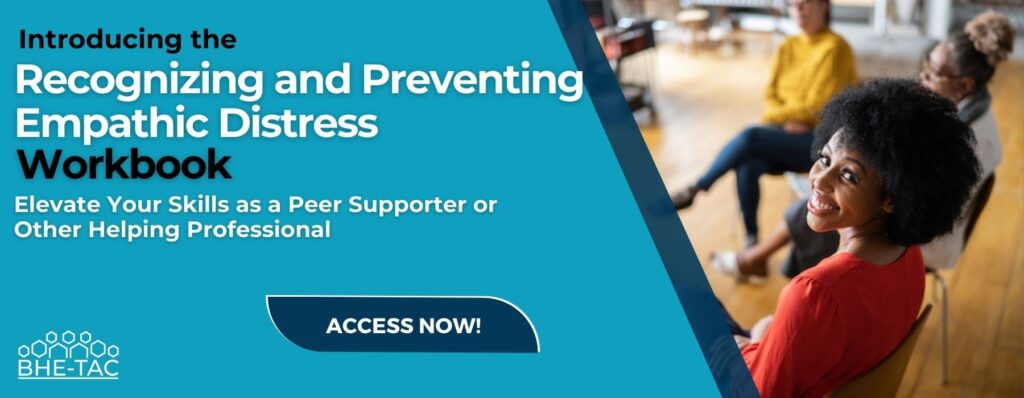
Empathic distress refers to the emotional exhaustion that arises from prolonged exposure to the trauma of others. Constant exposure to others’ pain and suffering can lead to burnout, compassion fatigue, and can have a significant impact on professionals’ mental health. This can result in a sense of emotional distance, making it difficult to form and maintain meaningful connections. Additionally, helping professionals may struggle with maintaining objectivity and making sound decisions due to the overwhelming empathic distress they experience.
Understanding and addressing the burden of empathic distress is essential for the well-being of the helper and the helped.
Subject matter experts Kris Kelly and Laura Saunders created the Recognizing and Preventing Empathic Distress Workbook to help peer supporters and other helping professionals create a space of growth, self-discovery, and resilience. The workbook includes a facilitator's guide, a participant's guide, and ten learning modules. By incorporating role-plays and practical exercises, this workbook enables helping professionals to practice shifting from empathy to compassion. It also focuses on developing effective coping strategies, promoting resilience, and navigating stress and adversity in a healthy manner.
The Facilitator’s Guide provides detailed instructions on leading a group of peer support professionals through a series of interactive sessions. The sessions can be conducted in a live or virtual setting.
The Participant's Guide provides step-by-step instructions for participants embarking on this transformative journey.
Each of the ten 60-minute session modules is designed to help the facilitator and group participants explore the nuances of empathic distress and strategies for recognizing and preventing it. Each module focuses on shared experiences and growth and is designed to be completed in sequence, with skills introduced building on each other.
By the end of the workbook, facilitators and participants will possess both the knowledge and skills to recognize empathic distress and the tools to prevent it.
Expand the sections below to access the workbook components. Click to view and/or download each resource.



Program Manager, Peer Recovery Center of Excellence
Program Manager, Michigan Initiative to Promote Healthy Lifestyles